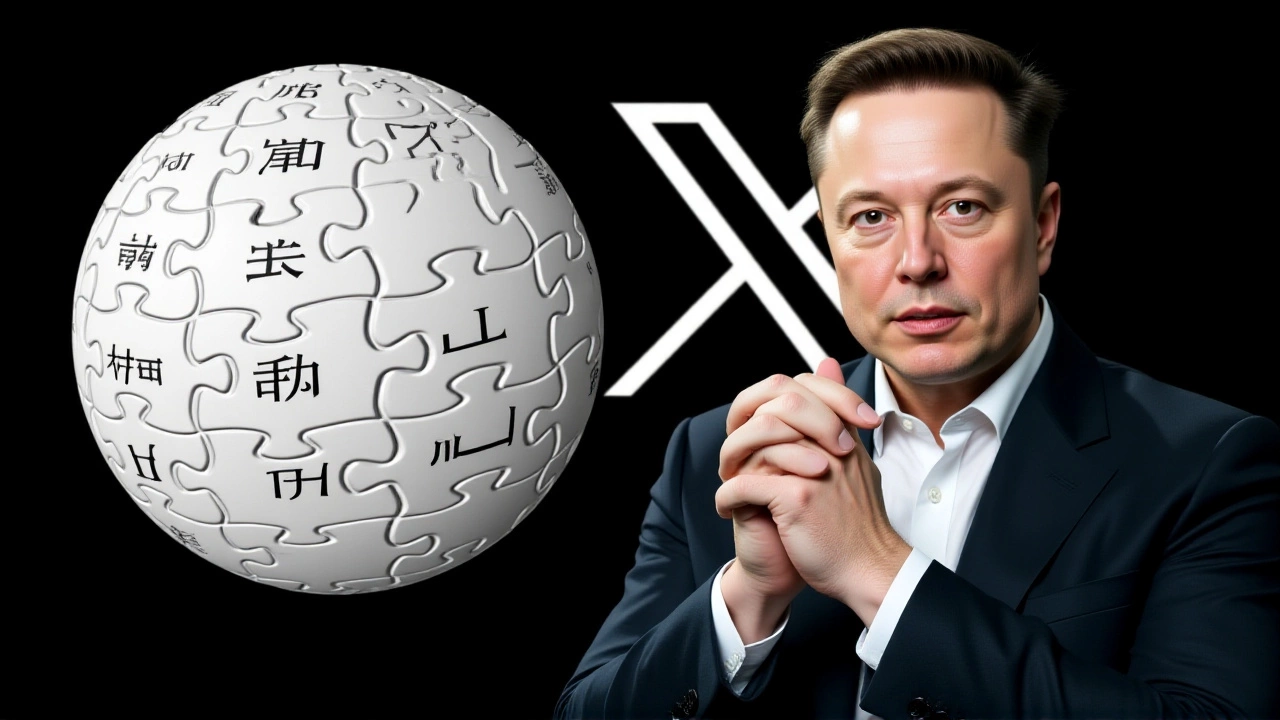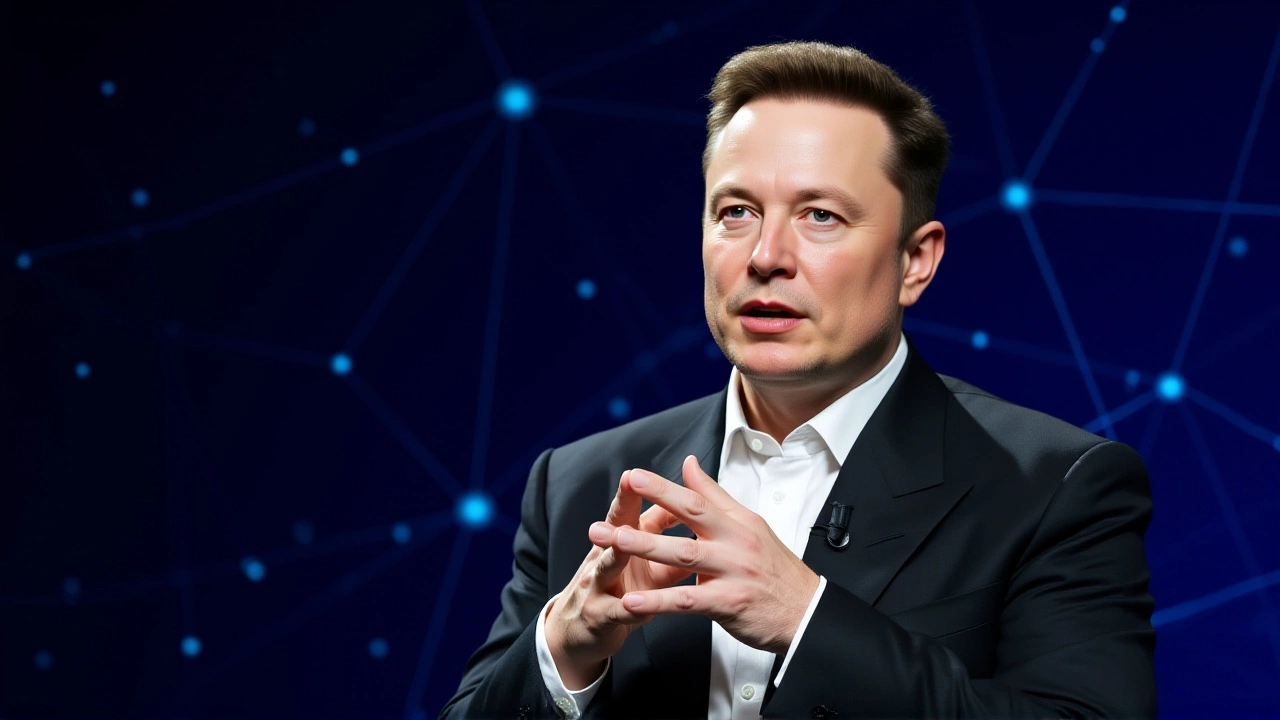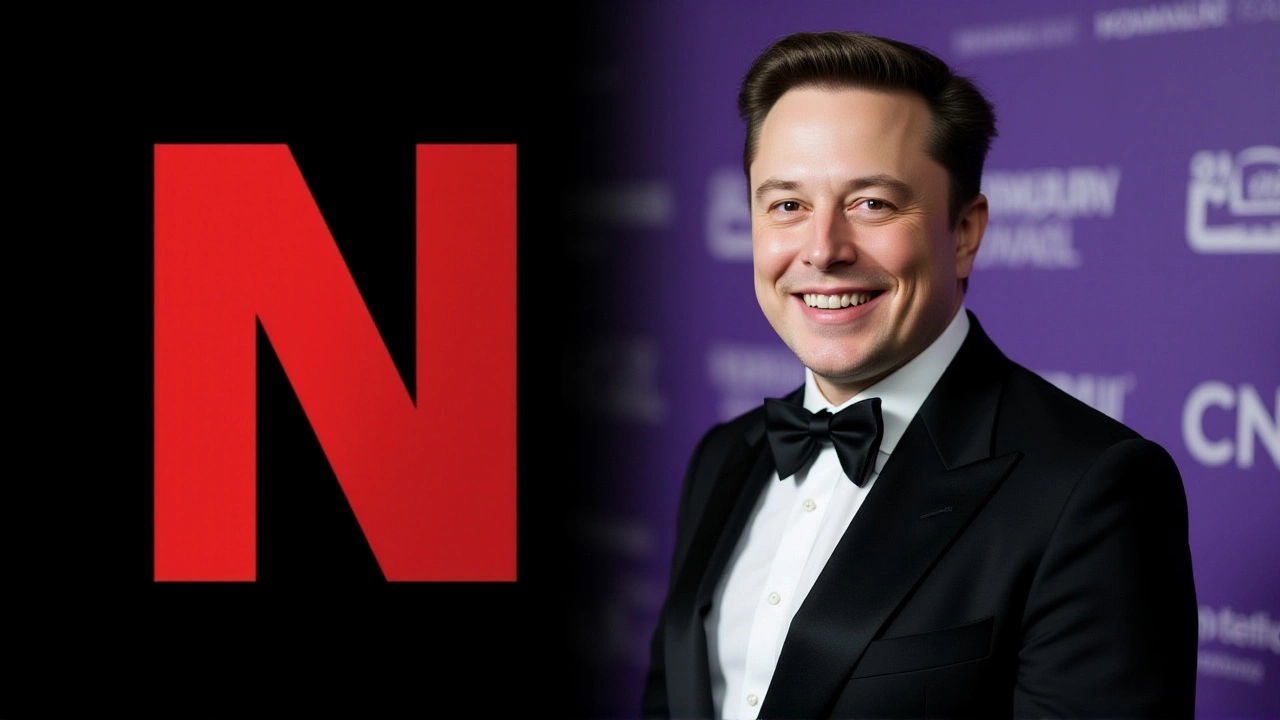On October 8, 2025, Elon Musk, CEO of Tesla, Inc. and founder of SpaceX, dropped a bomb on social media: "Canceled Netflix for the health of your kids." The tweet, posted on X (formerly Twitter), triggered an immediate 2% plunge in Netflix, Inc. (NASDAQ: NFLX) stock during regular trading hours. What made this different from typical influencer-driven boycotts? It wasn’t just about politics—it tapped into a deeper cultural fault line around representation, free speech, and corporate content moderation.
How a Canceled Show Became a Flashpoint
The target of Musk’s ire? Dead End: Paranormal Park, an animated Netflix series that premiered in June 2022 and ended with its second season in June 2023—nearly 16 months before Musk’s tweet. The show featured Barney, a transgender character whose journey of self-discovery was central to the plot. But here’s the twist: Netflix had already canceled the show. No new episodes were coming. Yet Musk’s followers didn’t care. They saw the show as symbolic of a broader trend they opposed. The spark? A comment by Hamish Steele, the show’s creator. On Bluesky, Steele had responded to British Prime Minister Keir Starmer’s public condolence for the death of Charlie Kirk, founder of Turning Point USA, with a profane outburst: "Why the [****] are you even commenting on this, [****] head… a random n*** gets shot and it's a public statement." Steele later claimed he didn’t celebrate Kirk’s death, but the damage was done. Conservative media outlet Libs of TikTok amplified the clip, turning it into a rallying cry.The Market Reaction: Fast, Fierce, But Fleeting?
On CNBC’s Fast Money, traders and analysts scrambled to interpret the fallout. One unnamed trader noted, "The destruction there was far greater than any... boycotts and the protests lasted much longer than anybody, I think expected." They compared it to the 2021 Budweiser boycott after the company supported LGBTQ+ causes, which saw temporary dips but no long-term erosion of brand loyalty. Another added, "Budweiser has been one of the great buys over the last six months when you work through some of that." The implication? This might be noise, not a trend. Netflix’s stock closed down 2%—a $1.3 billion loss in market value. But here’s what the numbers don’t show: subscriber churn. Netflix has 269 million global subscribers. Even if 0.1% canceled (about 269,000 accounts), that’s less than one day’s typical sign-ups. The real test? Will this spark a sustained exodus? Historical data from similar controversies—like the Disney+ backlash over Star Wars: The Bad Batch or the Target Pride campaign boycotts—shows most social media-driven cancellations fade within 30 to 60 days unless fueled by continuous outrage.
Why This Isn’t Just About Kids or Trans Characters
Musk’s tweet didn’t mention Barney. It didn’t cite specific scenes. It invoked "the health of your kids"—a phrase loaded with emotional weight, often used in culture war rhetoric. The real target wasn’t a canceled cartoon. It was Netflix’s broader content strategy: its willingness to fund diverse voices, even when they provoke backlash. And Musk, who has positioned himself as a free speech absolutist on X, sees this as a moral stand. But there’s irony here. Netflix’s most-watched show in 2025 was Stranger Things, a nostalgic throwback with no political messaging. Meanwhile, Dead End: Paranormal Park had a total viewership of under 1.2 million across both seasons. The show was niche. The outrage was manufactured.What’s Next? The Long Game
Netflix hasn’t responded publicly. That’s telling. The company knows that reacting amplifies the fire. Instead, they’re watching subscriber retention metrics closely. If churn spikes beyond 0.3% over the next 30 days, they may quietly adjust content acquisition. But if the storm passes? They’ll likely double down on inclusive storytelling—because their core audience, especially younger viewers, expects it. Meanwhile, Musk’s followers are already moving on. Some have switched to YouTube, Hulu, or even TikTok. Others are just… not paying attention anymore. The market loves drama. But it loves consistency more.
Behind the Scenes: Who Really Benefits?
Let’s not ignore the players pulling strings. Libs of TikTok, led by Chaya Raichik, has built a business model on turning obscure cultural moments into viral outrage. Their audience thrives on moral panic. Musk’s tweet wasn’t an accident—it was a perfect storm. A billionaire with 170 million followers, a canceled show with a controversial creator, and a conservative media ecosystem ready to weaponize it. This isn’t about kids’ TV. It’s about power. Who gets to decide what stories are told? And who profits when those stories become battlegrounds?Frequently Asked Questions
Did Elon Musk’s tweet cause Netflix to lose subscribers?
Netflix hasn’t released official churn data, but early estimates suggest a 0.05% to 0.1% dip in sign-ups over the 72 hours following Musk’s tweet—far below the 0.3% threshold analysts consider concerning. Most cancellations appear to be from accounts already inactive, suggesting the impact was more symbolic than financial.
Why did Netflix’s stock drop if the show was already canceled?
The drop reflected investor anxiety about brand perception, not direct revenue loss. Netflix’s valuation is tied to its reputation as a progressive content leader. Musk’s tweet framed that identity as harmful to children, triggering fear among conservative-leaning shareholders and triggering algorithmic sell-offs based on sentiment analysis.
What role did Hamish Steele’s comment play in the controversy?
Steele’s off-the-cuff remark, amplified by Libs of TikTok, provided the moral justification Musk’s followers needed to act. It shifted the narrative from "Netflix supports trans kids" to "Netflix creators mock conservative grief." The show’s content became secondary to the perceived attitude of its creator.
Is this boycott likely to last?
Unlikely. Past social media boycotts—like those against Budweiser, Target, or Disney—typically lose momentum within 45 days unless sustained by new incidents. Netflix’s content pipeline is too diverse and popular to be derailed by a single tweet. The real risk is if Musk continues targeting other platforms, creating fatigue among his own followers.
How does this compare to previous corporate culture wars?
Unlike the 2020 Budweiser boycott, which targeted a specific product line, this is about identity and values. Netflix’s brand is more polarizing than Budweiser’s, but also more resilient. Its subscriber base skews younger and more diverse, and those users are less likely to abandon the service over a single controversy—even one amplified by a billionaire.
What’s the bigger picture here?
This isn’t about Netflix or even trans representation. It’s about the weaponization of outrage by powerful figures to influence markets and shape culture. Musk’s tweet was a test: Can a single post move a $200 billion company? The answer so far: yes, briefly. But markets recover. Cultural narratives take longer to change.
